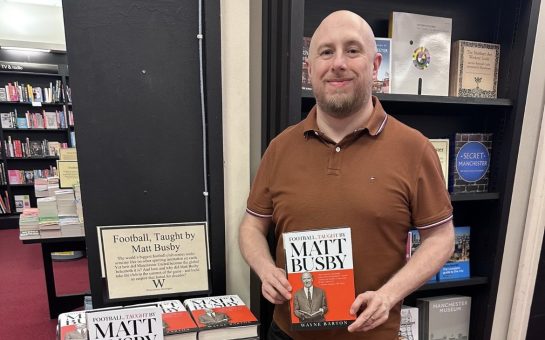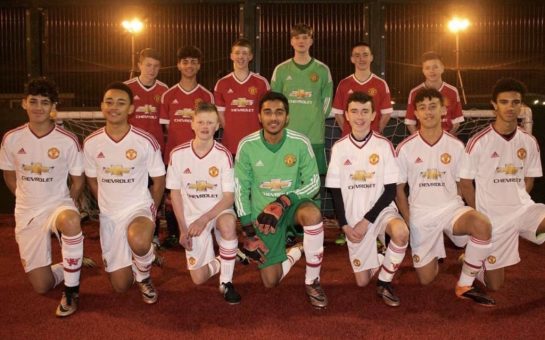Reports of racism, sexism and anti-Semitism in football are on the rise, with 184 incidents of abuse already this season, but it’s ‘not all bad’, according to anti-discrimination organisation Kick It Out.
New statistics have shown a 35% increase in the number of incidents of discrimination reported to the organisation by the midway point of this season.
The figures were collated between August 2014 and December 28 2014 and compared with those of the same time period during the last campaign (2013/14).
While on the face of it, a rise in documented cases of discrimination might be seen as a negative development, the pertinent message is that it is in fact indicative of great progress in the percentage of incidents being reported.
Paul Mortimer, the organisation’s Professional Player Engagement Manager, told MM: “What has happened is that the ability to report, and education around reporting, has greatly improved.
“A lot of this is down to our new mobile app, which allows completely anonymous on-the-spot reporting of incidents.
“In granting victims total anonymity, we eliminate any fear of reprisal and give the power back to the fans.
“We want to offer the courage and protection that has previously been lacking. If we get one thing out of this, it would be more people using the reporting app.”
The statistics certainly support this claim, with the mobile app accounting for 27% of all reported incidents relating to the professional game.
The announcement comes in the wake of two very high-profile cases involving discrimination in recent weeks, in which both Chelsea and West Ham United fans have been publicly incriminated.
“Issues like the Chelsea and West Ham incidents show that we have a lot of work to do,” said Mr Mortimer.
“However I believe the backlash they have faced is very promising. It has made the public realise that the issues lie outside of the football grounds, and the nation has stood up and said ‘We are not having that’.”
Kick It Out’s new reports document all echelons of the game at both professional and grassroots level, and relate to incidents inside and outside grounds – where they have seen a remarkable 65% rise in reported discrimination cases since last campaign – as well as on the pitch.
While racism predictably constituted 64% of the public complaints, it was followed by anti-Semitism making up 17%.
The figures also highlighted progress in the reporting of sexism, with 13 cases documented.
Also reported cases of discrimination on the basis of sexual orientation were up by 10 since last season.
One of the most notable questions to arise from the Chelsea scandal is the hypocrisy of the fans in question.
It beggars belief that, in a footballing climate in which every continent and race is represented in the top flight, such boldly exhibited racism can still exist.
On that now infamous night in Paris, Chelsea fielded four black players, with Brazilians Ramires and Willian starting, while Frenchman Loic Remy and Colombian Juan Cuadrado were introduced from the bench.
One of the club’s most cherished sons, Ivorian Striker Didier Drogba, was an unused substitute.
The fans in question cheered on their coveted black players, and then proceeded to push a black member of the public off a train and mock him in song.
Chelsea fans have stood in solidarity against the perpetrators, displaying anti-racism banners at Stanford Bridge, while manager Jose Mourinho has publicly spoken of the shame the incident has brought the club.
But the club’s overwhelming response has since been marred by a second incident, in which four Chelsea supporters were removed from a train from London to Manchester on Sunday by British Transport Police amid more racism allegations.
Asked about the dichotomy in behaviour inside and outside the stadium Mr Mortimer explained that this attitude does not represent a flaw of all football fans, but a problem in society.
He said: “It is a common misconception that these people are just football fans and this causes such behaviour, but this is not football’s problem, it is society’s problem.
“In this day and age, to behave that way is through choice, not through ignorance. We have been one of the strongest nations in the world when it comes to preventing discrimination inside the grounds.
“However, if these people leave the ground, abuse somebody in public or take to social media and post some form of racial slur, it is a different story, and to be capable of racist behaviour is not something that is linked intrinsically to football.
“Unfortunately the game has sometimes been used as a platform.”
Reported incidents of football-related hate crime via social media have increased by 24%, and have again been accompanied by several high-profile cases this season.
In September, Liverpool forward Mario Balotelli was bombarded with racial abuse via Twitter after mocking Manchester United’s 5-3 defeat by Leicester – the incident prompted a police investigation.
And in January, United fired one of their scouts, Torben Aakjaer, for allegedly posting racial slurs on Facebook.
Mr Mortimer explained that the increase in reported cases on social media was also a hugely promising sign, as this is where those with discriminatory beliefs are turning under the illusion that they can fly under the radar.
“There is bound to be a rise in the reported figures initially, but this should be seen as a good thing, as the first step is empowering people to report, and that is what we are doing,” he added.
“The more reports we get, the more information we can work with, and the sharper our procedures become.”
Image courtesy of Open Society Foundation, via YouTube, with thanks.



